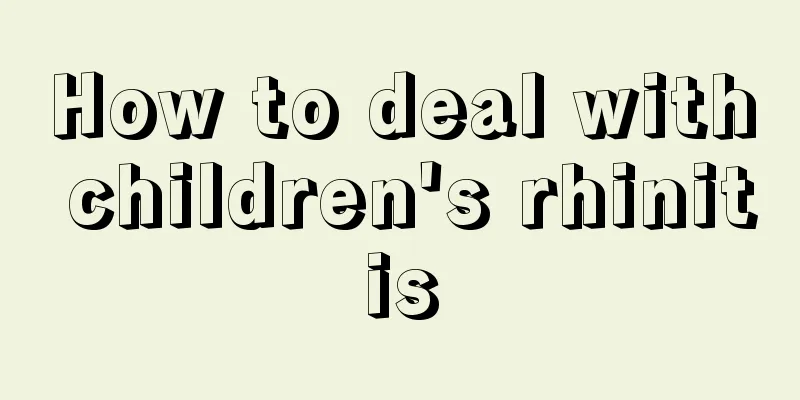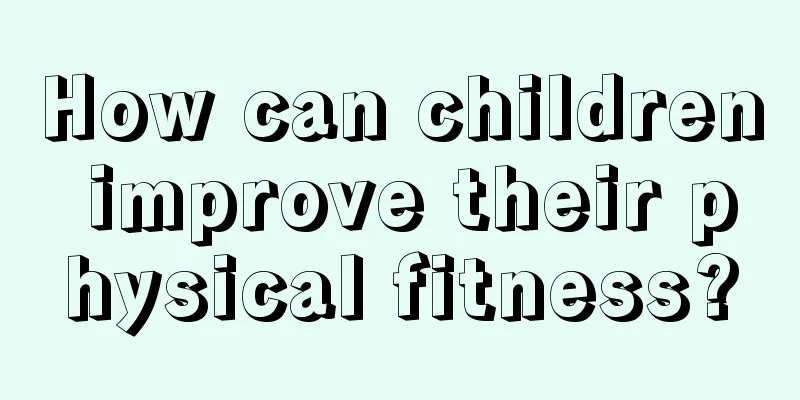Symptoms of baby teething, don't make mistakes again

|
When a baby shows a series of symptoms such as irritability, crying, and frequent drooling, parents are very anxious, but the baby cannot speak and they have no idea what the reason is, so people will take the baby to see a doctor. In fact, this may be a symptom that the baby is about to grow teeth. 1. Irritability and crying Cause: This is a phenomenon that occurs in some children when teeth erupt, or it may be caused by an unusual feeling in the gums, a mild inflammation of swollen gums, or pain and discomfort after biting the gums. Some children experience short-term symptoms such as restlessness in sleep, crying, and a slight rise in body temperature before teething. Countermeasures: Generally, just give the baby teething food or teething toys to chew and divert his attention, and the baby will calm down. You can also wear finger gloves or use moist gauze to massage your baby's gums to relieve discomfort during teething and promote the eruption of deciduous teeth. 2. Drooling Reason: During the teething period, the baby's swallowing ability is not yet perfect, and the secretion of oral fluid increases, causing some saliva to overflow and form drooling. This situation is mostly a temporary manifestation of the teething period. 3. Fever At this time, the antibodies from the mother in the baby's body gradually disappear, and the baby's immune system has not yet been fully established, so it is very easy to be infected by the outside world and have a fever; some babies will experience varying degrees of fever when they are teething. As long as the body temperature does not exceed 38℃, and the baby is in good spirits and has a good appetite, just give the baby more boiled water. If the body temperature exceeds 38.5℃ and is accompanied by irritability, crying, refusal to feed, etc., you should seek medical attention promptly and ask the doctor to check whether there are other infections. 4. Diarrhea Diarrhea occurs as a symptom of teething in babies. This is because during this period, the variety of complementary foods added to the baby gradually increases, which can easily cause gastrointestinal discomfort or diarrhea due to changes in food or eating habits. When the baby's bowel movements increase but the amount of water is not high, you should temporarily stop adding other complementary foods to the baby, and focus on adding easily digestible foods such as porridge and thin, soft noodles. If you have more than 10 bowel movements a day and the stool is high in water, you should seek medical attention immediately. 5. Teething pain Some babies will experience teething pain as a symptom of teething. This is because when the deciduous teeth erupt, the small teeth push against the gums and grow outward, which can cause slight swelling of the gum tissue, stimulate the nerves on the gums, and make the baby feel uncomfortable. |
<<: What should I do if my child has farsightedness? Parents can do this
>>: What to do if your child is very stubborn? Solve the mother's troubles
Recommend
Can rhinitis cause coughing in children?
Children with chronic rhinitis cannot clear their...
Can babies with eczema take a bath?
Eczema is a very common skin inflammation in infa...
How to diagnose white spots on baby's forehead
Once white spots appear on the baby's forehea...
What is the best way to treat body odor in children?
Everyone is very afraid of body odor. Although bo...
What harm does fluorescent agent have on babies?
When it comes to fluorescent agents, many people ...
What are the symptoms of epilepsy in children?
Children's physical health is easily affected...
Can children's frequent urination and urgency be cured?
Some parents report that their children always ur...
Your child vomits a lot of white phlegm?
If a child vomits a lot of white phlegm, it is li...
How to improve children's decreased appetite
If a child's appetite decreases, it will harm...
What are the physical methods of cooling down children's fever?
Parents are very worried when children have certa...
How to treat toothache in children?
Toothache in children is common and has a variety...
What can children take to grow taller?
Parents all want their children to be healthy and...
First aid for foreign bodies in children's trachea
Children are naughty by nature, and when they are...
Does a small fetal head affect intelligence?
Since the last century, our country has implement...
What are the symptoms of zinc deficiency in eight-month-old babies?
The health of the baby is an issue that every fam...









